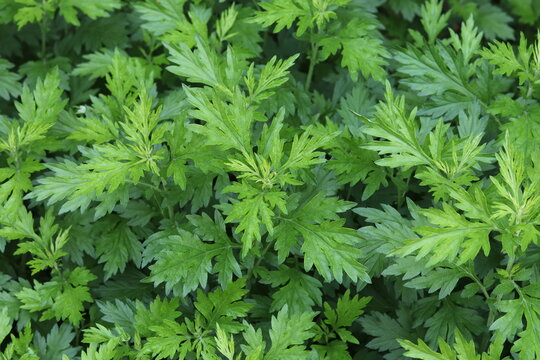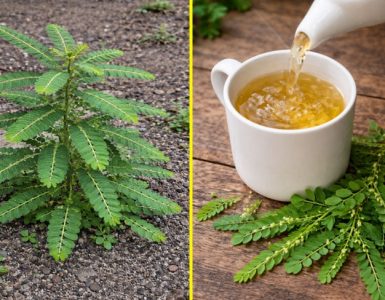Mugwort (Artemisia vulgaris) is a hardy, aromatic plant with a long history in traditional medicine, especially in Europe and Asia. Often called the “dream herb” or “witch’s herb,” mugwort has been used for centuries to aid digestion, balance the female cycle, and even enhance vivid dreaming.
Today, mugwort tea is gaining renewed interest for its natural healing properties, particularly in the fields of digestive health, hormonal balance, relaxation, and detoxification.
Top Benefits of Mugwort Tea
1.Promotes Vivid Dreams and Mental Clarity
Mugwort is famous for its ability to stimulate lucid and vivid dreams.
Traditionally used before sleep to enhance dream recall and inner insight.
May also help promote relaxation and relieve anxiety when taken in the evening.
2.Supports Women’s Health
Mugwort is a natural emmenagogue, meaning it helps regulate menstrual cycles and ease menstrual cramps.
Often used to stimulate delayed periods or balance irregular cycles.
Can ease discomfort during PMS and menopause (hot flashes, irritability).
3.Calms the Nervous System
The soothing properties of mugwort tea help reduce anxiety, nervous tension, and restlessness.
Ideal as a mild sedative tea before bedtime.
4.Aids Digestion
Mugwort stimulates bile production, easing digestion, bloating, and flatulence.
Often used as a bitter tonic to improve appetite and reduce indigestion.
5.Supports Liver and Kidney Detox
Traditionally used in liver and blood detoxification protocols.
Has mild diuretic effects, promoting fluid balance and gentle cleansing.
6.Antimicrobial and Antiparasitic
Mugwort has antibacterial and antifungal properties.
Used historically to expel intestinal parasites and treat mild infections.
How to Make Mugwort Tea
Ingredients:
1 teaspoon of dried mugwort leaves
1 cup of boiling water
Instructions:
Pour boiling water over the dried herb.
Steep for 5–10 minutes, depending on desired strength.
Strain and drink warm.
Optionally, sweeten with honey or combine with calming herbs like chamomile or lavender.
Recommended use: 1 cup per day, preferably in the evening. Do not consume for more than 7–10 consecutive days without a break.
Precautions & Who Should Avoid Mugwort Tea
Not safe during pregnancy – it can stimulate the uterus and may lead to miscarriage.
Avoid while breastfeeding unless supervised by a professional.
Those with allergies to plants in the Asteraceae family (ragweed, daisies, marigolds) should avoid mugwort.
In large doses or long-term use, mugwort may cause toxicity – always use moderately.
Traditional and Modern Uses Beyond Tea
Smudging: Used for energetic cleansing, similar to sage.
Topical use: Infusions used in baths or compresses to ease joint pain and cramps.
Moxibustion: Burned as part of traditional Chinese medicine to stimulate energy flow.
Mugwort tea is more than just an herbal beverage—it’s a window into ancient herbal wisdom. Whether you’re seeking better digestion, hormonal harmony, or deeper dreams, mugwort offers a gentle yet potent remedy. As with any herb, it’s best used with respect, intention, and moderation.






Add comment